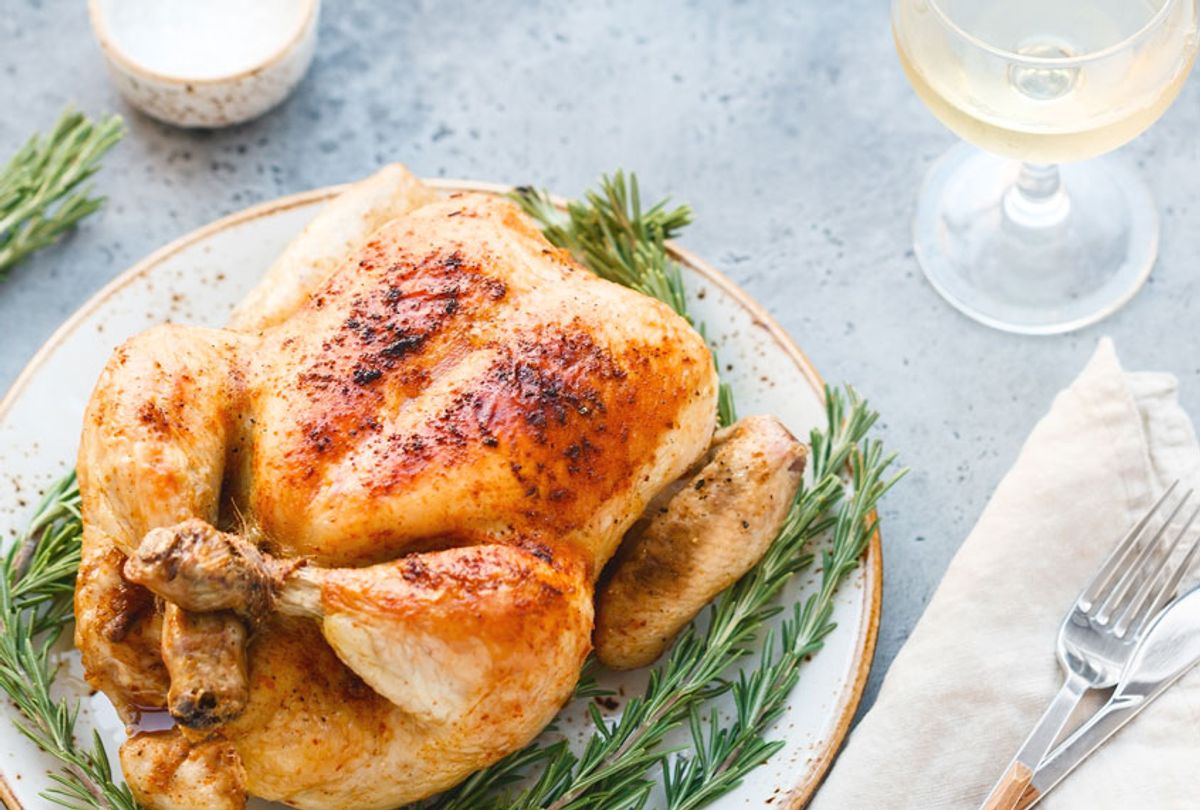You can change lives, and the only thing you need to do is cook dinner.
There's a line in New York Times food editor Sam Sifton's latest cookbook that says, "People that are lonely, feed them."
"I don't think we like to admit it, but I think people are lonely," the author of "See You on Sunday" told me when he visited Salon recently. "Invite them in, feed them and they're going to have a better time. And you're going to feel better for having given them that gift."
Sifton starts his cookbook journey with an entire chapter on chicken. He writes that "a roast chicken dinner is a complete explanation of why we cook." And he has data to back that claim up: "Chicken" tends to be the most-searched term on The New York Times website. It's also one of the easiest meals you can cook in the comfort of your own home, no matter your skill level.
When Sifton recently appeared on "Salon Talks," he imparted his wisdom for all things chicken, including his secret for the perfect roast chicken and how to think outside of the commonly used chicken breast. Watch my full interview with Sam Sifton here, or read a Q&A of our conversation about chicken below.
This interview has been lightly edited for clarity and length.
In "See You On Sunday," you write that a roast chicken dinner is a complete explanation of why we cook. Why is that?
Well, I'll refer to our Thanksgiving experience. No matter where you're from, no matter how long you've been in this country, no matter how young or old you are, when you take that roast turkey out of the oven at Thanksgiving, you're connected to a cultural history of the holiday that runs back to the unfortunate birth of this country, but specifically to the 1940s and that Norman Rockwell ideal of grandmother taking the bird out, the kindly grandfather looking over her shoulder and the kids looking up at the bird, with their apple cheeks and it's a picture of white privilege.
But it is available to everyone, right? The roast chicken is a version of that, but it's much less freighted with political history. It is this fragrant, crackly, sweet, salty, easily devourable, easily doubled or tripled meal that you can serve to family and friends. At once rustic and sophisticated because it's a whole bird. And boy it tastes good, too.
What is the secret to making a perfect roast chicken, every time?
A dry skin — 100% dry skin. If you've got time to pat that bird down and get it into the refrigerator with a shower of salt over it a number of hours before you cook, moving cold air in the fridge is going to help. And that salt is going to help dry out the skin so that when the bird goes into the hot oven, the heat doesn't have to first evaporate liquid on the skin. It can immediately start to render the fat, the sebum that's under the bird's skin, and give it that crispy, golden, delicious exterior that we all love.
I'm a fan of dark meat chicken, and I cook a lot with chicken thighs. I was happy to see that your recipes call for them. Why do you recommend the chicken thigh?
For the same reason that you do. They are, in my mind, infinitely more flavorful than the breast, much more difficult to overcook as a result and just the perfect size. A chicken breast, even if it's perfectly done, can be really big.
It's big. There are big breasted birds in America, but I like those thighs. And getting a supermarket pack of good organic thighs, 18 of them or something, man — you just lay those out in a sheet pan, get them in the oven. Oh, they're good eating.
Speaking of chicken, you said that an experience of accidentally incinerating chicken taught you a lot about vegetables and what they bring to the table.
It sure did. I spent a lot of time — probably too much of my time — being a big meats proponent. I did put together a meal that ended up in the book, where I was using a gas grill unfamiliar to me for the first time, and I screwed it up. And I accidentally literally incinerated — I burned these things to black husks. And I just throw them in the trash, and turned to all my vegetables and made a huge grilled vegetable feast. No one remarked on it, and I learned a lot by that. What am I doing always having to have huge meats and proteins? Let's celebrate these vegetables!



Shares